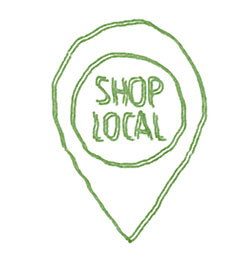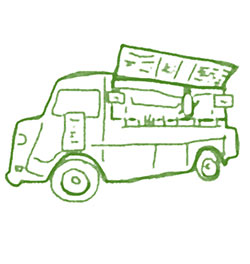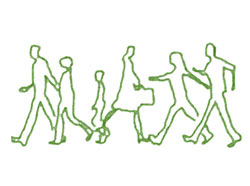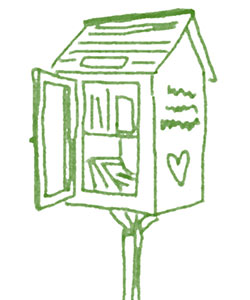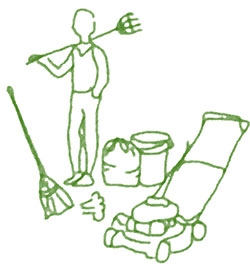How You Can
Help Your Community Right Now
Our small towns were already facing various challenges before the COVID-19 virus occurred. As we all begin to wrap our heads around the pressing challenges our small towns are currently facing, we are also beginning to plan for new realities and new challenges in the near and distant future.
At the Small Town Center, we are reminded of our mission to provide meaningful solutions to problems faced by small towns. We are also mindful that our greatest community assets are its people-YOU! To that end, we would like to share some resources and ideas on what you can do right now, and how you can better prepare for your community’s recovery.
1. Support Local (Safely)
Although shopping and eating out isn’t the same anymore, local businesses still need our support. Unified “Shop Local” signage can easily indicate to customers which businesses are open, curbside pickup availability, and modified hours. Safety measures, such as gloves, masks, and routine sanitation can protect both the employees and the patrons.
2. Stay Connected
Take note of any gaps in your community’s broadband network.
As more people work from home, an accessible and full coverage broadband network becomes a great asset for a community. Read more below to learn about steps your town can take to keep your community connected.
Utilize social media and your city’s website to communicate with your community.
As more people begin to rely on Facebook, Twitter, and Instagram as news sources, local government entities can use social media to interact with their constituents. Read more at civicplus.com blog. A FAQ page on your city’s website can communicate changes to city services such as reduced trash pickup, how to pay your bills online, how to view the livestreams of meetings, etc. Share on social media.
3. Bring on the Food Trucks
Food trucks and mobile food vendors are a great way to keep food options diverse while keeping customers and employees safe. Consider temporarily changing any legislation or ordinances that are normally restrictive to these types of services that can benefit local businesses during times of crisis, such as allowing food trucks in residential areas or allowing restaurants and vendors to sell their extra supplies to serve as mobile grocery stores for produce. Farmers’ Markets and Community Supported Agriculture (CSA) subscriptions are other great ways to support your local farmers and have fresh produce or meat delivered to your home.
Learn how food trucks can be adaptable and of service during times of crises
4. Create a Community Walk + Bike Audit
While stuck at home during social isolation, many people are going on more frequent walks and bike rides around their neighborhood. Encourage your community to download and conduct Neighborhood Walk and Bike Audits or sidewalk and bike path inventories around your neighborhoods. Responses can be emailed into the Small Town Center for compilation which we will share with your city.
5. Help your Senior Citizens
Many of our small towns have aging populations, who have become the most vulnerable of citizens in this crisis. Implementing a volunteer program that can help with non-contact chores, such as taking out the trash, getting the mail, mowing the lawn, grocery delivery, etc. is a great way to make sure no citizen is left without help. Utilize churches, local youth, and other volunteers to check on senior citizens in your community. Sometimes a simple phone call to check in can go a long way to brighten their mood and uncover any problems that need addressing.
6. Engage Your Youth
Finding engaging activities for youth is a common problem in communities. Now that youth have even more time on their hands, creative measures may be necessary to keep our kids productive and entertained while also keeping them safe. (Implementing a program that utilizes youth engagement for numbers 4 and 5 above would be one way to fill their time!) Check out these resources to keep your youth engaged:
8. Beautify Your Community
The psychological effects created by this virus are bound to linger well after all restrictions are lifted and life starts to return to normal. To reset and move forward when it is finally safe to do so, consider hosting a Community Clean-Up day. Depending on the individual needs of your community, this clean-up could focus specifically on not only tidying up, but also sanitizing public outdoor spaces, such as playgrounds, benches, trash cans, and any other public amenities that rely on human contact. People may have a newfound awareness of and appreciation for how cleanliness affects our overall health, and this event could help reassure continued safety measures, as well as a psychological reset.
